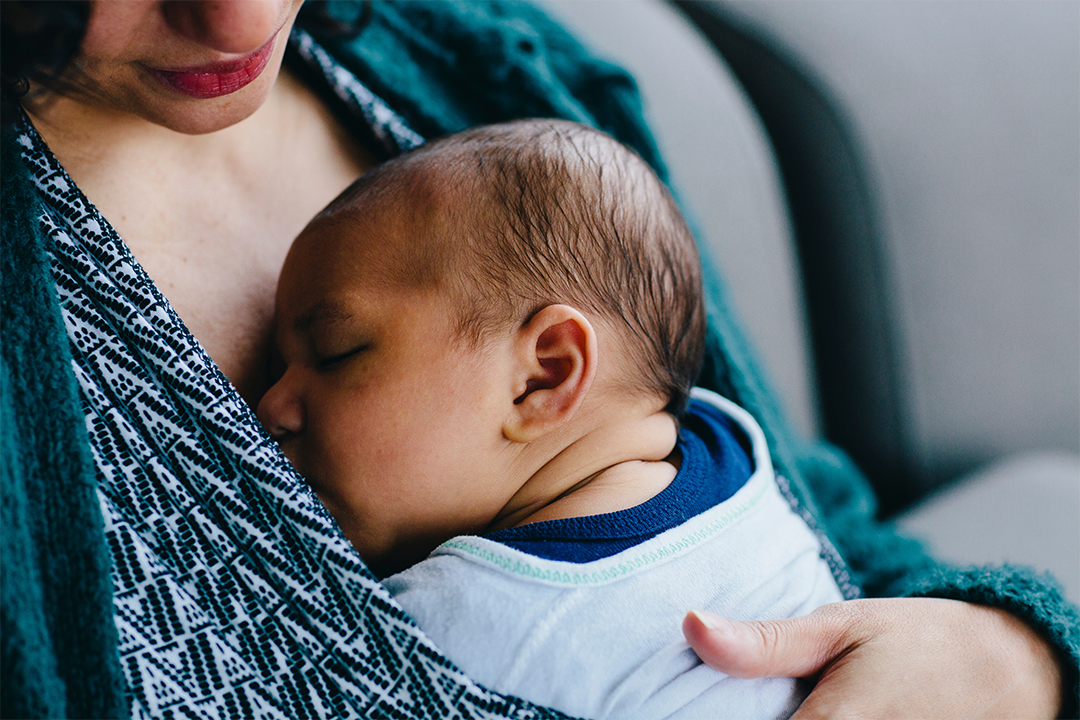Infant sleeping
- 0-1 Years
- Sleep

It is well known that babies need a lot of sleep. Most babies will spend more time asleep than they are awake.
Explore the topics on this page:
Waking during the night
Your baby will frequently wake up during the night to feed. This is perfectly normal and healthy for your baby’s development. Babies will typically sleep in 2 to 3 hour periods. This is because babies have very small stomachs and need to feed throughout the day and night to meet their needs.
It's important to breastfeed at night. Nighttime is when hormones for milk production are at their highest.
As a parent, you may feel under pressure to make sure your baby sleeps alone, through the night without waking and not requiring any attention during the night. This is unrealistic and can be harmful for your baby.
Babies do not know about day or night cycles. It is perfectly normal for babies to wake and feed throughout the night for at least the first year.
Try to reduce the amount of disruption when your baby wakes during the night. Try to keep the lights off or use as little light as possible. If your baby needs to feed, try to feed them and put them back down to sleep.
Not settling
There are times when your baby will struggle to settle down after a feed. Your baby may need some reassurance through skin-to-skin contact and gentle rocking. This can be done by a safe and familiar adult. Both men and women can do this.
Skin-to-skin contact is good for building a bond or attachment with your baby. It can be reassuring for your baby as they will be able to hear and feel your heartbeat. It can also help you as a parent. It can help build your resilience and help you cope with the stressful situation.
If your baby is breastfeeding, offering the breast again can help. Even if your baby has just fed. Babies can go to the breast for many reasons like food, comfort, and love. There is no risk of overfeeding a breastfed baby.
Read our information on coping with a crying baby.

How to manage as a parent
It can be overwhelming and stressful to have your sleep disturbed during the night. It is important that you try to rest as much as possible. Below are some tips that may help:
Adjust your expectations. Try not to compare your baby to other babies. This includes comparing them to older siblings.
Sleeping when your baby sleeps. With a baby you will be waking through the night to feed. Especially during the first few months, try to sleep when your baby sleeps.
Having your baby sleep in the same room as you, especially if you are breastfeeding. This can help reduce the impact on your sleep throughout the night. You can gently bring your baby near you and feed them.
Finding friends and family who can help you. Ask yourself who can help, such as watching the baby while you sleep. Reach out to your support network and don’t be afraid to ask for help.
Last reviewed: 1 November, 2024
